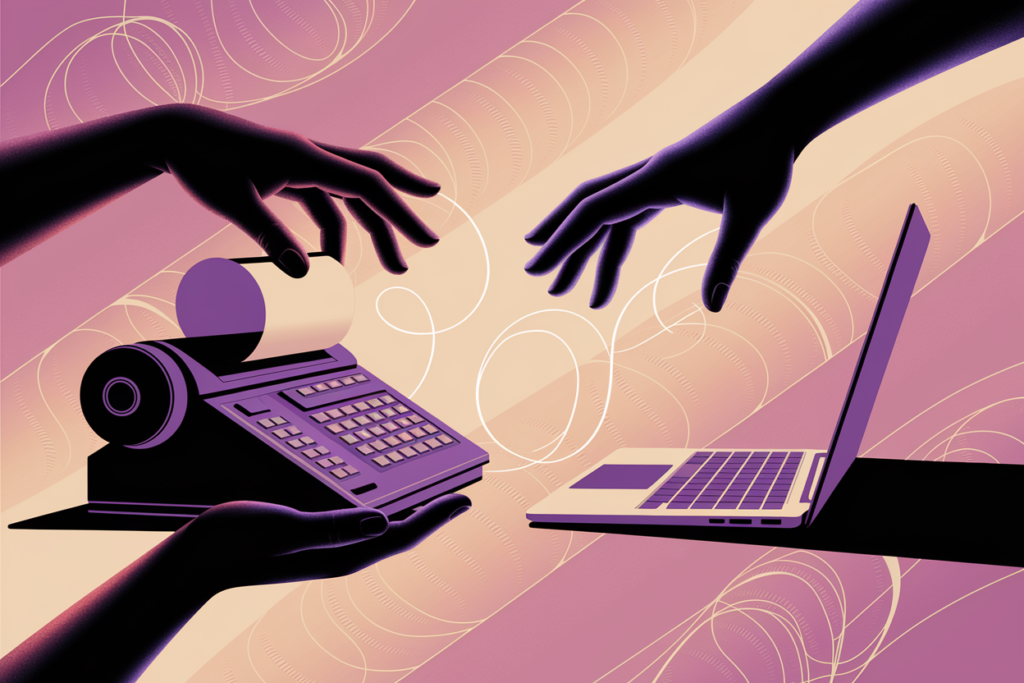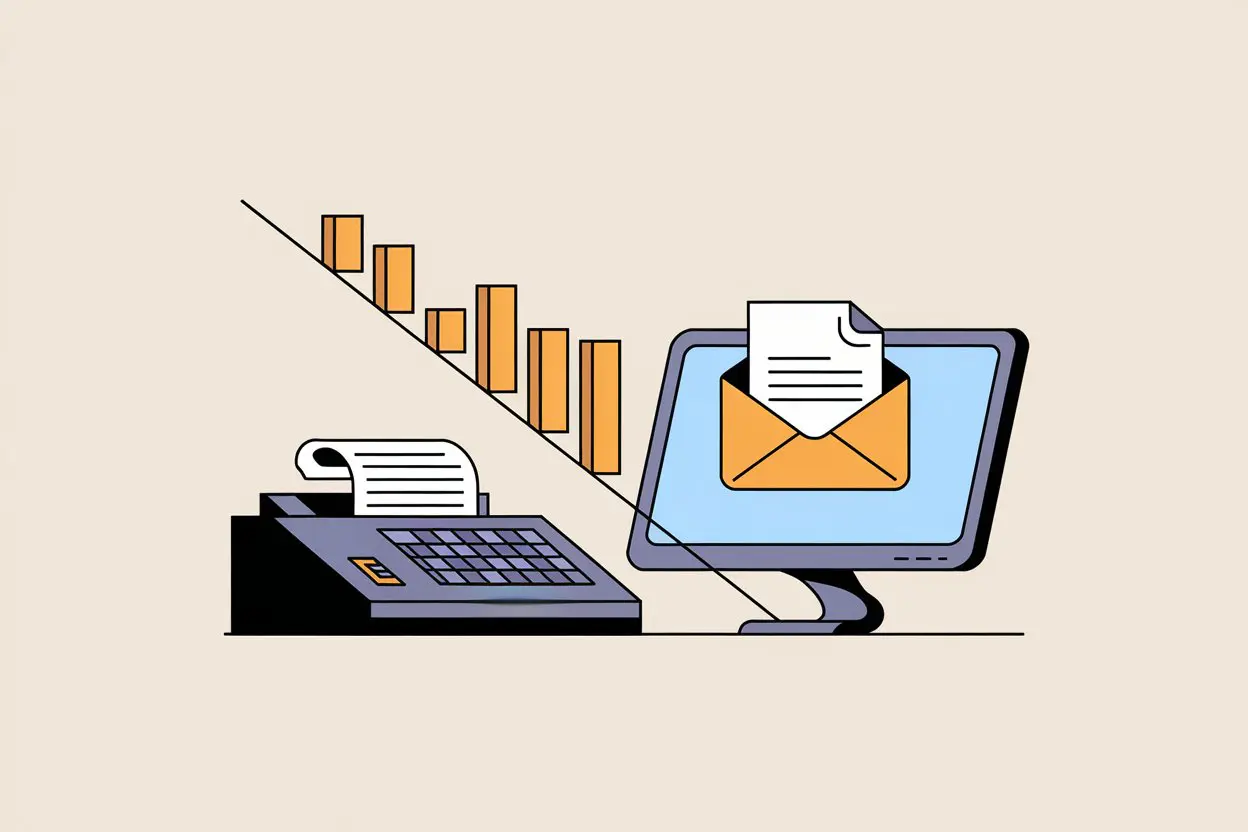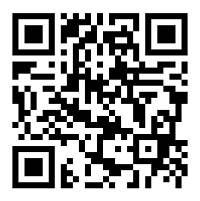Businesses, governments, banking institutions – a lot of people need to be super careful with their (and other people’s) data. While email is convenient, and it totally revolutionized how we communicate, it’s not always secure. We’re always hearing about hacking, phishing scams, data breaches, and a host of other problems. Honestly, you’re better off sending a fax for the important stuff.
“But didn’t the people who wore beepers also use fax machines?” Well, yes. But they were definitely onto something. The tech isn’t new, but unlike email, faxes don’t stick around in the cloud waiting to be hacked, nor do they pass through a series of servers (any of which could be compromised). That’s why many healthcare companies, financial institutions, and law firms still rely on them.
So, is fax safer than email? And if so, why?
To answer that, in this article we’ll break down:
- Why it’s important to keep data secure (beyond the obvious)
- Why email is vulnerable to security risks
- How fax protects sensitive data
- How modern online faxing enhances security
- Some common misconceptions about faxing
Fax vs. Email: There’s More to Secure Data than Basic Privacy
Keeping data under wraps can prevent a slew of serious problems for just about everyone. Personally, you don’t want anyone getting your login credentials to a bank account. Moreover, corporations have all kinds of info they don’t want competitors to see. And law firms constantly deal with highly sensitive communications. We’ll talk about some of the ways data can end up in the wrong hands later, but for now, we need to mention the other big reason we all need to be careful – compliance.
Some government agencies make strict security demands for certain types of information. The best example for most people is the Health Insurance Portability and Accountability Act (HIPAA) in the U.S. In short, HIPAA governs the steps everyone has to take to send electronic protected health information (ePHI) from point A to point B. Failure to meet the standards set down by HIPAA can land anyone in serious legal trouble. Similarly, in the E.U., the General Data Protection Regulation (GDPR) governs the transmission of personal data. Both mechanisms illustrate how seriously governments take data security.
So how does the fax vs. email debate figure into this?
Understanding how Email Works and Its Security Weaknesses

Now, we’re not going to pretend that email isn’t awesome. It’s quick, easy, and reliably preserves info for later retrieval, which is what matters a lot of the time. The Simple Mail Transfer Protocol (SMTP) sends messages across a host of networks, and many of them live in the cloud once they’ve hit your inbox. It’s sure convenient, but it makes email vulnerable.
Here Are Some Common Email Security Threats
- Phishing Attacks – Cybercriminals can trick users into clicking malicious links or providing sensitive information. Experts have warned of a rise in sophisticated email phishing scams targeting Gmail and Outlook users. In fact, A 2024 cyberattack on Australian banks used phishing emails to distribute malware. They got a ton of login credentials.
- Email Spoofing – Attackers forge sender addresses to impersonate trusted sources (like Amazon or your bank). They can easily steal your login credentials or other sensitive info.
- Man-in-the-Middle Attacks – Some hackers are adept at nabbing unencrypted emails in transmission. If they get one of yours, the data is theirs.
- Data Leaks and Breaches – Email servers store vast amounts of sensitive data, making them attractive to hackers. In 2023, Russian hackers breached Hewlett Packard Enterprise’s Office 365 system. HPE had to make an embarrassing admission.
Given these risks and the attendant breaches, businesses really should rethink their information security protocols—and that’s where faxing comes in.
How Traditional Fax Works and Why It’s Secure
Old-school fax machines are still one of the most secure ways to send sensitive info. It’s direct, which means it bypasses a lot of the vulnerable points of an email system.
Instead, faxes scan a document, convert it into electronic signals, and send them to another machine over the Public Switched Telephone Network (PSTN). The PSTN creates a dedicated, point-to-point connection. And it’s not interned-based—no bouncing through a bunch of servers and waiting for a middleman to intercept them.
Malware and phishing aren’t an issue, either. In fact, most machines don’t even store the data they receive. The old wisdom was not to leave a paper trail. Now, you’re better off not leaving an electronic one. To tie it back to compliance, faxing is generally the preferred method of transmission for HIPAA and GDPR, provided you carefully follow the guidelines.
An Important Caveat
While fax is inherently secure, to be fair, the physical machine is a point of failure. If a machine is in an open office or unsupervised, unauthorized people could grab documents when they arrive. That’s why HIPAA and GDPR require physical safeguards. A physical medium demands physical security, and the best practice is to house fax machines where fewer people can access them or where they’re under constant supervision.
How Online Faxing Improves Security Further
The crack about fax machines and beepers at the beginning wasn’t meant to be cute. It’s a very popular misconception. Fortunately, modern online faxing addresses concerns about fax technology being obsolete. It integrates advanced security features that can keep data safe and compartmentalized. Municorn Fax App offers a great illustration of how modern faxing works.
The Advanced Security Features of Fax App
- End-to-End Encryption: Fax App uses robust encryption protocols like 256-bit AES. It can secure documents during transmission and storage and ensure that only authorized parties can access whatever you send.
- Secure Cloud Storage with Access Controls: Fax App stores documents in encrypted cloud environments with stringent access controls. Practically speaking, it gives businesses the flexibility to manage permissions and define exactly who they want to access the data.
- HIPAA Compliance: Fax App also holds a certificate of compliance with the Health Insurance Portability and Accountability Act (HIPAA). Anyone who’s had to send medical info knows that HIPAA has exacting standards for security – and Fax App has exceeded them.
The Key Differences Between Fax and Email Security
As we said before, email is great. However, depending on your needs for a specific type of communication, fax may be more appropriate. This table shows the differences between the two, and it can help you decide which method is best for your current needs.
Comparison: Is Fax More Secure than Email?
| Feature | Fax | |
|---|---|---|
| Data Transmission | Sent via multiple servers (risk of interception) | Direct peer-to-peer transmission (PSTN) |
| Vulnerability to Hacking | Easily hacked via phishing and spoofing | Difficult to intercept |
| Encryption | Requires additional encryption layers | Built-in security via PSTN |
| Storage Risks | Emails are stored indefinitely in inboxes | Faxes are typically printed, not stored digitally (risk of physical interception) |
| Tamper Evidence | Emails can be altered without detection | Faxed documents are difficult to modify without a trace |
Choosing the Best Option
The chart may make email look like the villain here, but it really depends on what you need. If security is not an issue, stick with it. But there’s a slew of industries that rely on faxing when they need to keep data protected as reliably as possible.
Industries Relying on Fax for Security
- Healthcare: Providers of all types (e.g., hospitals, clinics, etc.) need to send patient records, prescriptions, and other ePHI between each other, but they all need to stay compliant with HIPAA. For them, ensuring a fax is up to snuff is generally much easier. It’s no wonder they prefer fax to email.
- Legal: Law firms need to observe privacy laws and conform to legal standards. Emails are often appropriate for basic communications, but when they need to ensure client confidentiality or send sensitive documents, they usually stick with a fax.
- Financial: Banks and other institutions perhaps stand to lose the most if there’s a data breach. They need to send documents securely, confirm time-sensitive trades, and preserve the privacy of borrowers and lenders. As with many other industries, they often prefer fax to email.
There are more industries that deal with sensitive data than we could possibly name here. But the short list above underscores the need for data security. Email is quick and convenient, but it’s way more susceptible to a breach than faxing. That’s why so many people and institutions trust the good old fax.
Addressing Common Myths About Fax Security
We say good “old” fax, but the tried and true has also modernized a bit. It’s not the fax that’s obsolete – it’s the myths and misconceptions about it. It’s time for a little debunking:
- Myth: “Fax is obsolete.”
- Reality: It fits the digital age very well. Modern fax apps let users send and receive faxes through email, mobile apps, and cloud storage, so it’s super convenient. Also, because of the encryption and other electronic security measures, healthcare, legal, and finance firms still prefer it to regular email.
- Myth: “Email encryption makes it just as secure as fax.”
- Reality: It helps, sure. But emails are much more susceptible to human error than faxes. Phishing is not the only example, but it’s a biggie. Poorly trained or careless employees can be tricked or persuaded to give login credentials or other info away. This is almost impossible with faxing.
- Myth: “Fax machines are vulnerable to hacking.”
- Reality: Unlike email, faxes use the (PSTN), which can’t be intercepted easily. Since it’s not a normal computer network with servers, hackers can’t exploit the same network vulnerabilities that plague email. And even if a fax machine (or app) is connected to the internet, the IT infrastructure and advanced encryption make a data breach much less likely than email.
Fax isn’t outdated. It’s secure.
Conclusion: Is Fax More Secure than Email?
Security isn’t optional for sensitive data. Email is quick and easy, but definitely not secure. Faxes are a different story. They’re not open to phishing, hacking, or most of the other things that can lead to data breaches or non-compliance. They simply bypass them.
But the fax hasn’t been stagnant. Modern versions like Fax App merge the tried-and-true security of a fax with digital convenience – secure storage, end-to-end encryption, and easy compliance with security standards (including HIPAA). To put it short, Fax App will keep you protected.
So, if you’re in healthcare, law, finance, or any other industry that puts a premium on data security, don’t leave anything to chance. Ditch the email, and switch to Fax App. You’ll have secure and reliable communication. With no compromise.






